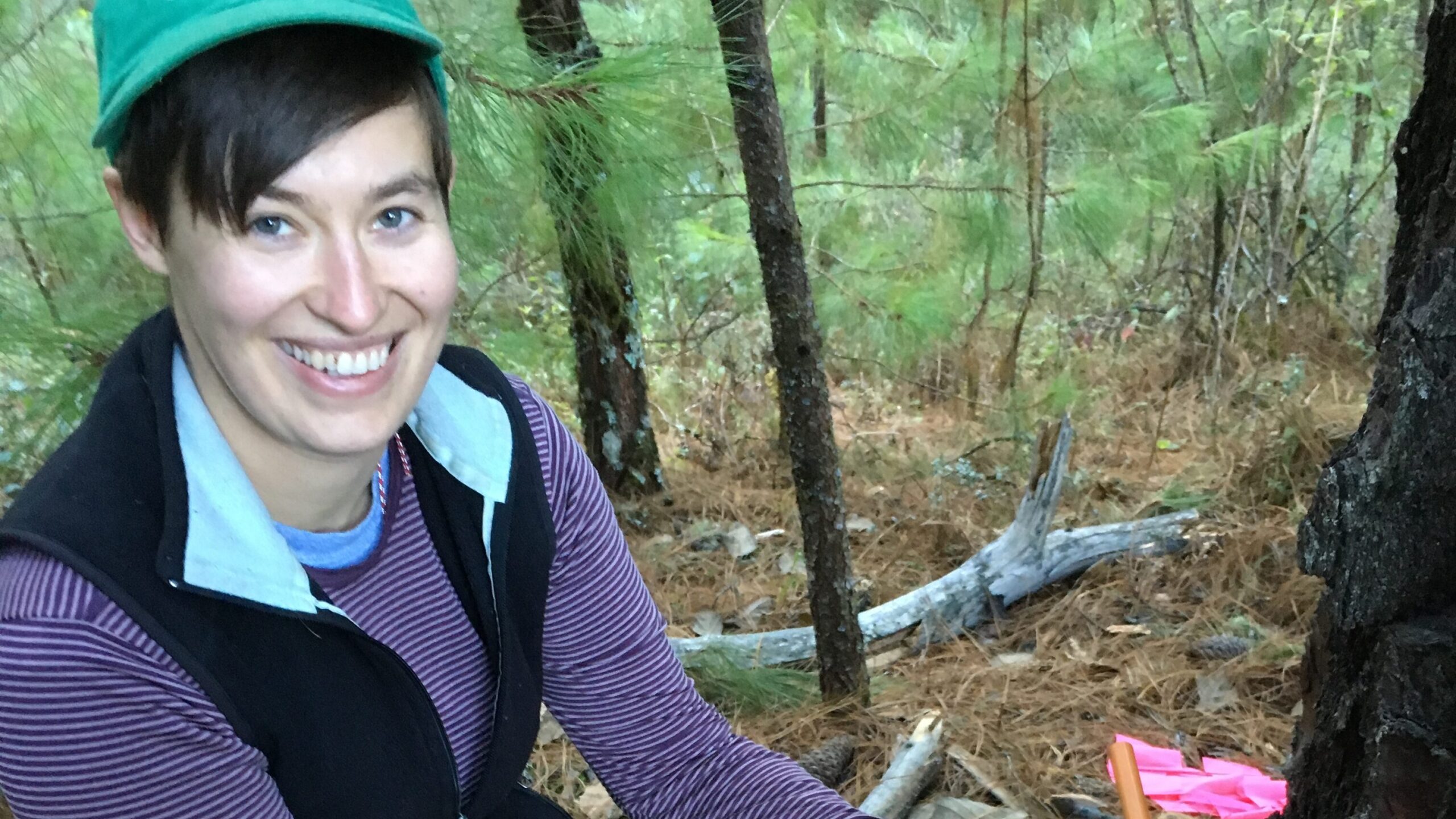Faculty Profile: Dr. Meredith Martin
Meredith Martin is an Assistant Professor in the Department of Forestry and Environmental Resources at North Carolina State University. Her research is focused on forest ecology and silviculture of both timber and non-timber forest products around the world in temperate, subtropical, tropical and urban environments. Dr. Martin holds a PhD and MFS from the Yale School of the Environment in Forest Ecology and Silviculture, and a BA from Columbia University in Environmental Biology. Prior to joining NC State, Dr. Martin worked as a postdoctoral associate with Yale and The Nature Conservancy studying tropical restoration and reforestation.

1. What do you study?
I use the frameworks of theoretical ecology to ask questions about species diversity and successional dynamics, while integrating applied questions regarding species growth and regeneration, sustainable yield, and silvicultural management. I have studied a broad array of forest climates (e.g. temperate, tropical, subtropical, montane) and across a range of resource systems, including urban forests in San Francisco, home garden agroforestry systems in Sri Lanka, and with wild-harvested NTFPs and timber in Mexico and Peru. My research broadly supports forest conservation through sustainable use and management, and is based on collaborative relationships with local universities, governments and NGOs, and indigenous communities.
2. How did you get into your field?
I had always loved nature and science, so I was pretty sure I wanted to study something in the environmental field in college. Then I took forest ecology and ethnobotany courses as an undergraduate and was captivated—especially with the idea of using forest management and community forestry to support conservation. I had the opportunity to be involved in a few different research projects as an undergraduate, some on conservation genetics and one on a non-timber forest product in Mexico, and from there I decided that I really preferred the field of forest ecology and being involved in fieldwork out in the woods rather than being in a lab. This led me to apply for a Masters in Forest Science, and then a PhD in forest ecology and silviculture, and now here I am!
3. What is most exciting about your research, and/or what do you hope to achieve with your research?
To me, the most exciting part of my research is working on questions that are both interesting from a science perspective but also relevant for practical management. I also really enjoy working with community managed forests, because of both the more holistic focus on multiple forest products and because of the opportunity to support environmental justice as well as conservation through community-based management.
4. What led to you becoming a professor at NC State?
I really appreciate the applied focus of research at NC State, and so I was really excited when the position in ecological silviculture was advertised. I also love teaching and mentoring, so the even balance of research with teaching also attracted me to the position.
5. What is your favorite course to teach?
I haven’t had the chance to teach here yet, but I am excited to teach my Ecological Silviculture course for the first time next fall. The course will focus on giving a really solid introduction and foundation in stand dynamics theory and silvicultural management of natural forests for a wide-range of objectives—from timber to water to restoration to climate and more—and I am excited to get students outside and looking at forests!
6. What advice would you give students interested in your field of study?
To get involved in research and fieldwork as early as you can if you think you might be interested. Even if you know you don’t want to be a scientist, I think it is really helpful for forest managers to have an understanding of the scientific process. I also would really encourage students not to be afraid to ask professors about opportunities available to you. I often felt intimidated by my professors, but when I mustered the courage to ask about potential projects I was always welcomed and am so glad that I did!